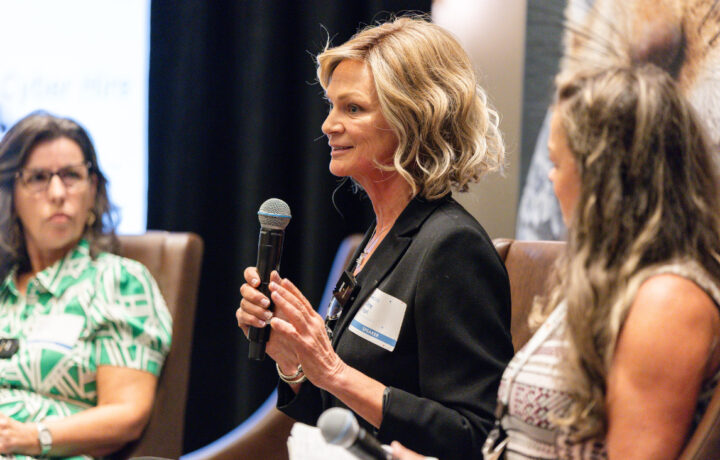The cybersecurity community often cites millions of unfilled roles, yet candidates across every stage of their careers report difficulty landing work. In this session from ClearanceJobs Connect 2025, The Cyber Guild Executive Director Debbie Sallis moderated a panel with two industry voices—Diane Vogel of TekStream Solutions and Felicity Amos of Carahsoft—to explore whether the challenge is truly a talent shortage or a deeper mismatch between expectations and opportunity.
Vogel describes a market where “entry-level” roles frequently require two years of experience, while mid-career and senior technologists have been swept up in waves of layoffs across both commercial tech and the Washington, D.C. region. Add security clearance requirements, on-site mandates, and narrow job criteria, and employers end up competing for the same limited pool of cleared professionals. As Sallis notes, it becomes less about growing talent and more about “robbing Peter to pay Paul.”
To break that cycle, Vogel points to innovative models like TekStream’s student-powered Security Operations Center developed in partnership with the Louisiana university system, Splunk, and AWS. Students gain real-world experience triaging level-one incidents on an enterprise-grade tech stack, leaving the program with measurable outcomes—incident logs, audit scores, and technical exposure—that translate directly into employability.
The conversation also turns to the accelerating impact of AI and quantum technologies. Amos highlights that employers rarely expect deep experience in emerging fields, but they increasingly look for curiosity, adaptability, critical thinking, and the ability to apply tools like AI thoughtfully. Certifications still matter, especially when tied to government contract requirements, but the panel emphasizes that passion and systems thinking often matter more than any single credential.
Sallis also spotlights The Cyber Guild’s RISE mentoring program for women in cyber, which uses tools like Cyber Gen IQ to help proteges identify strengths and tailor their career paths intentionally rather than relying on costly one-size-fits-all programs.
Ultimately, the panel agrees: companies that win in today’s market treat candidates with respect, invest in upskilling clearable talent, embrace flexible work where possible, and engage deeply with the communities that are already cultivating the next generation of cyber professionals.




